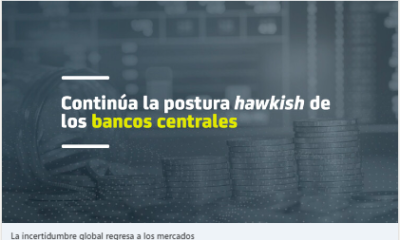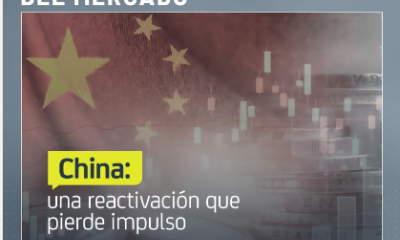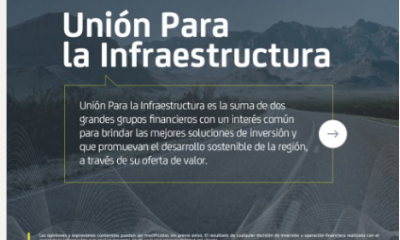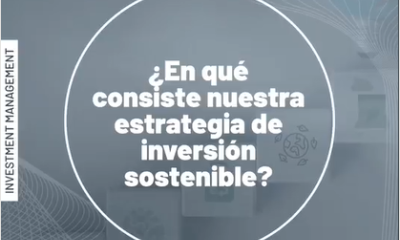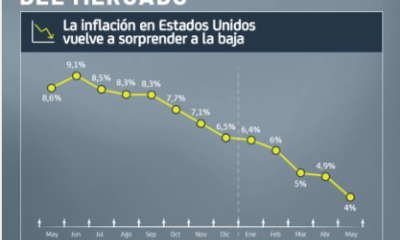- The Pacific Alliance and the multi-Latin companies were the central theme of the event that took place on the 19th and 20th August at the Colombian university EAFIT, at its campus in the city of Medellin.
- The meeting in Colombia was attended by ambassadors from eight countries, presidents of multi-Latin companies and academic experts.
Medellin, Colombia, August 21st. - Andrés Castro, Executive President of SURA Asset Management, participated in the ninth edition of the Asia Week forum, organized by the EAFIT University, whose main theme this year was: The Alliance of the Pacific and Multi-Latin Companies: strategies to narrow the gap with Asia Pacific.
Since 2007, the Center for Asia Pacific Studies of the EAFIT annually holds this event of outreach between the industries - both of the public and private sectors - and the academics of Colombia, Chile, Peru, Mexico, China, Korea, Indonesia, India and Japan, which seeks to deepen the knowledge about the region through conferences, seminars and business forums open to the public, and presented by national and international experts.
Six presentations were made to analyze the role of multi-Latin companies in the Pacific Alliance and what outreach strategies could be used with Asia.
SURA Asset Management, subsidiary of SURA Group and regional leader in pensions with more than 23% of the market share, participated in the panel "Trade and Services in the Pacific Alliance", in which Andrés Castro spoke about the importance of financial integration between the countries of the Pacific Alliance, and raised the need to open up new possibilities for investment and portability of pension funds.
At the same time, he presented the main results of a study presented this year by FIAP and FIAB, highlighting that, currently, the countries of the Pacific Alliance represent around 40% of the GDP of Latin America and, to date, the Latin American Integrated Market (MILA) is the most visible face of the financial sector, so there is a need for an integration agenda beyond this initiative.
"We believe that increased intraregional investment in pension funds would help to provide sectoral diversification for them; generate greater savings flows for economies and promote regulatory stability; given cross-investments require maintaining clarity in the rules", Castro said.
Another challenge in financial integration for the pension industry, as stated by SURA Asset Management, is to move towards the portability of funds between member countries without tax costs, under the principle of "free transit of people". This point was discussed at the X Summit of the Pacific Alliance in Paracas, Peru, where SURA also participated, making emphasis on these points.
The aim is for migrant workers to retain the pension rights acquired in their country of origin and to have equivalent rights in the country to which they move. Today the only countries with a fund portability agreement are Chile and Peru, since 2002.
About SURA Asset Management
SURA Asset Management is a Latin American company with operations in the areas of Pensions, Savings and Investment in Mexico, Peru, Chile, Colombia, Uruguay and El Salvador. It is a subsidiary of Grupo SURA, in addition to having four other shareholders holding a minority stake: Corporación Financiera Internacional (IFC), member of the Grupo del Banco Mundial; Grupo Bolívar, Bancolombia and Grupo Wiese. As of December 2015, it has a total of USD 103 billion in managed assets, belonging to 17.3 million clients.
About GRUPO SURA
Grupo de Inversiones Suramericana (South American Investment Group, SURA Group) is a Latin American company listed on the Colombian Stock Exchange (BVC) and is enrolled in the ADR-Level I program in the United States. It is also the only Latin American company, in the Diverse Financial Services sector, that is part of the Dow Jones Sustainability Index which recognizes companies that have the best practices in economic, environmental and social matters around the world. SURA Group has two types of investments: strategic investments, focused on the financial services, insurances, pensions, savings and investments sectors; and industrial investments, focusing mainly on the sectors of processed foods, cement and energy.









